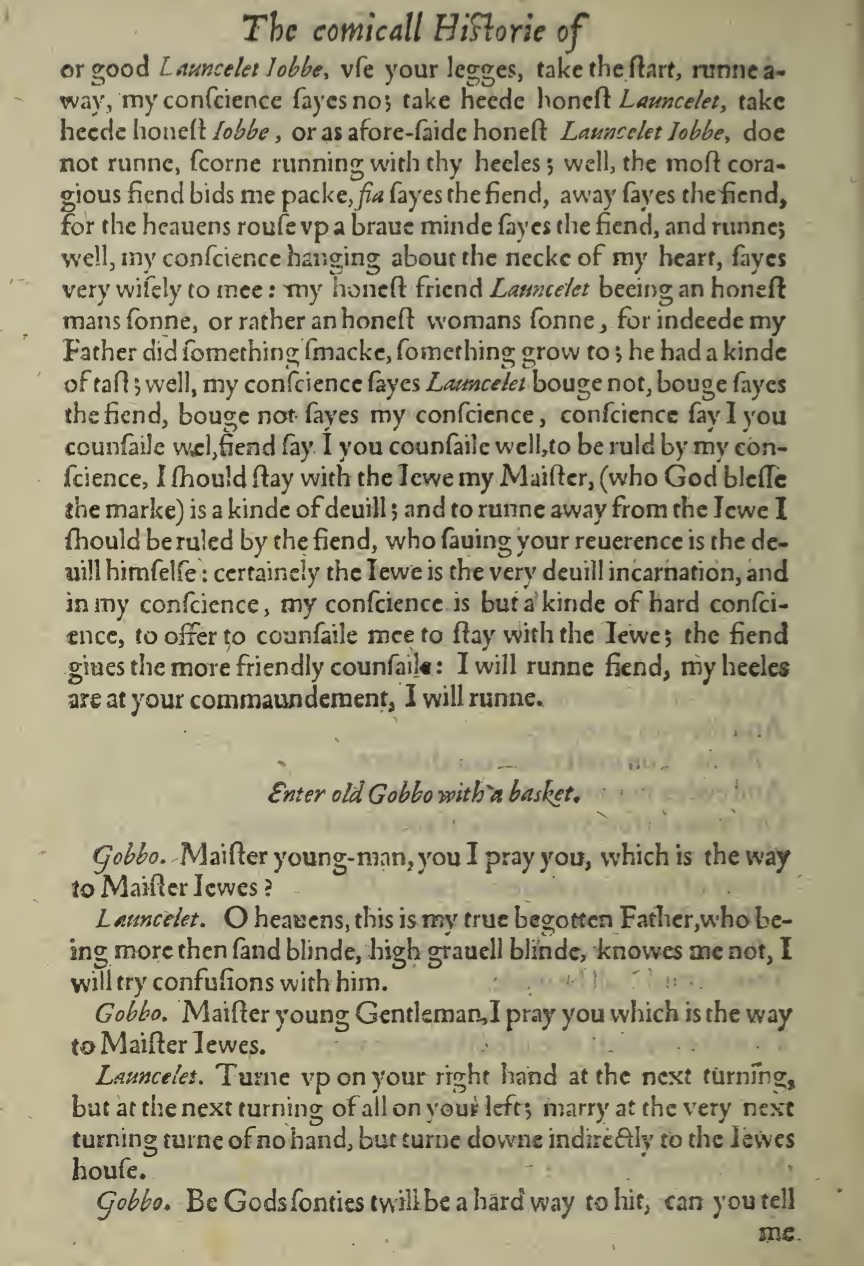The transcription for this page of The Merchant of Venice deviates from the First Quarto facsimile in a number of ways. The majority of the spelling has been updated for modern readers, in order to make the text more accessible and relatable. Several exceptions were made in order to retain a level of archaic richness of vocabulary, for example preserving “sonties” instead of modernizing it to “saints.” Punctuation has also been updated, in order to better compliment the natural rhythmic flow of the text.
In order to capture the back and forth between Lancelet’s conscience and the fiend, the former’s speech has been color coded blue, and the latter’s red. This degree of contrast can be seen in this theatrical performance: https://youtu.be/MeGov_sN8mw. The fiend’s words have also been emboldened, in order to signify the power they have in eventually winning over Lancelet. Lancelet’s father Gobbo has been renamed Old Gobbo in order to avoid confusion, and to emphasize the importance of his age; being old is part of Gobbo’s character, and the reason Lancelet is able to so successfully prank him. Lancelet's name is emboldened and color coded red when he speaks with Old Gobbo so as to emphasize how he is embodying the fiend when he pranks his father.
Through the use of color coding and bolding to emphasize the back-and-forth between Lancelet's conscience and the fiend, we hope to illustrate the issue of religious difference vs. religious intolerance that is prevalent in the play. Lancelet embodies this issue in how his religious differences with Shylock turn into religious intolerance - a prejudice that seems to run relatively shallow as he easily becomes distracted with pranking his father.
